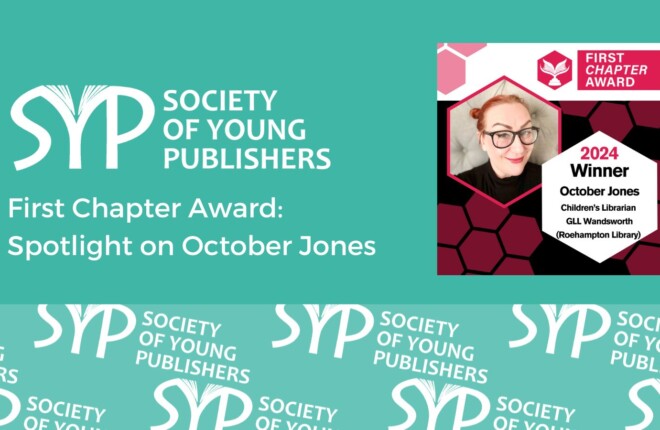
How Brexit could change the face of Britain’s writing industry
Posted on October 3, 2019 in UK

This article was written by Bethany Morris, a content writer for the Immigration Advice Service, an organisation of immigration lawyers providing legal support for those looking to migrate to the UK or hire overseas workers
The nationalistic rhetoric of reclaiming Great Britain’s independence and taking control of our borders was the cornerstone of the Brexit leave campaign. Trump’s mantra of ‘make America great again’ was in many ways echoed by politicians and people alike as millions of UK citizens took to the polling stations to cast their vote in the referendum. Three years on and the fiasco continues. Worryingly, many feel that after the UK’s departure from the EU, the anti-immigration rhetoric that consciously peddled the Leave campaign may leave a damaging legacy in its wake.
According to a 2016 Lord Ashcroft Poll, 81% of people who viewed multiculturism as a negative force voted for Brexit. Additionally, ‘78% of those who saw social liberalism; 74% of those who saw feminism, and 60% of those who saw the green movement as a social ill voted for Brexit’. Although the results of one poll are unlikely to be indicative of the general population, there is a concerning rise in hate crime linked to islamophobia, xenophobia and racism in the UK since the referendum which is jeopardizing the safety and rights of thousands of migrants in the country.
This rising trend of hostility towards different cultures has fostered an environment of hostility and scrutiny, in which the worth of migrants is frequently assessed by their financial contributions to the economy. The media and authority figures alike have persistently pointed the finger at migrants for being a drain on the UK’s resources. In reality, migrants help fill roles at risk on the Shortage Occupation List (SOL), or take low-paying, menial jobs that are commonly unpopular amongst British Citizens. Additionally, according to the briefing paper titled ‘statistics on migrants and benefits’ by the House of Commons in 2017, in 2016, only 7.4% of benefit claimants were not British nationals. This dissemination of misinformation has swayed public opinion in favour of demonising migrants unfairly and created a toxic environment for non-British nationals.
Unfortunately, Britain’s creative industries will not avoid the repercussions of this sharp rise in nationalistic ideology. The writing industry in particular relies on a wealth of multi-cultural talent to voice minority experiences and diversify the UK’s literary landscape. Basing the value of migrants on their annual financial earnings will provide one of the biggest blows to literature as on average, UK authors earn around £10,500 per year. However, to be granted indefinite leave to remain in the country, skilled-migrant workers must earn a minimum of £35,000 per annum. In response to this, The Society of Authors has stated that when free movement ends, the Government must ensure that visa requirements do not restrict or prevent European authors from entering the UK for work. If this does happen, it will restrict the opportunities for authors to travel and research for work, diminish the UK’s status as a hub for culturally collaborative opportunity, and deter migrants from applying for British Citizenship and settling in the UK.
The importance of a culturally diverse literary canon is indisputable. In recent years, high-profile universities such as Oxford have been criticised for teaching a predominantly white curriculum, where the historical achievements of BAME people are ignored. Across the UK, black and Asian professors are in shortage too, and students are becoming more vocal about how their ‘generation expect the automatic inclusion of perspectives, that often disturb the familiar white British cultural canon’. By teaching the works and history of authors such as Aphra Benn, and modern Black and European authors too such as Zadie Smith, young students will benefit from learning about and appreciating the diversity of literary history.
The UK publishing industry contributes significantly to the UK economy and in 2017, the industry generated a turnover of £5.7bn. A staggering 35% of workers in the creative industries are freelancers too and currently, no visa system exists for freelance workers, except for those who qualify as ‘exceptional talent’ or an ‘entrepreneur visa’. The amount of workers within the creative industries who are eligible for these are incredibly small and without an adequate system for freelancers, the UK risks losing a wealth of exceptional talent, isolating EU workers and leaving a significant financial hole in the creative industry.
The implications for the publishing industry post-Brexit could be even bleaker too. Although UK books are sent to countries across the world, the EU is the strongest region for sales, accounting for around 35% of revenue generated by exports. Publishers have warned that upon the UK’s departure from the EU, Britain will lose its ability to discuss and influence the creation of EU regulations. Under Digital Single Market proposals, Copyright framework will be discussed and Britain’s lack of influence on publishing legislation could put the industry at increased risk.
With the creative industries generating such significant revenue for the UK economy, and the contributions of non-UK nationals helping to diversify the face of British literature, the industry faces great uncertainty when it comes to Brexit. Publishing industries and workers’ rights will suffer and as a result, the minorities who tell their culturally unique stories through literature risk being shunned from the UK or deterred from working in the country due to visa restrictions. Once a culturally diverse hub of talent, the UK risks losing its inclusivity and ingenuity in the wake of Brexit which will not just be damaging to society, but to the face of literature too.




 Listen to the podcast
Listen to the podcast  Explore the Youtube channel
Explore the Youtube channel